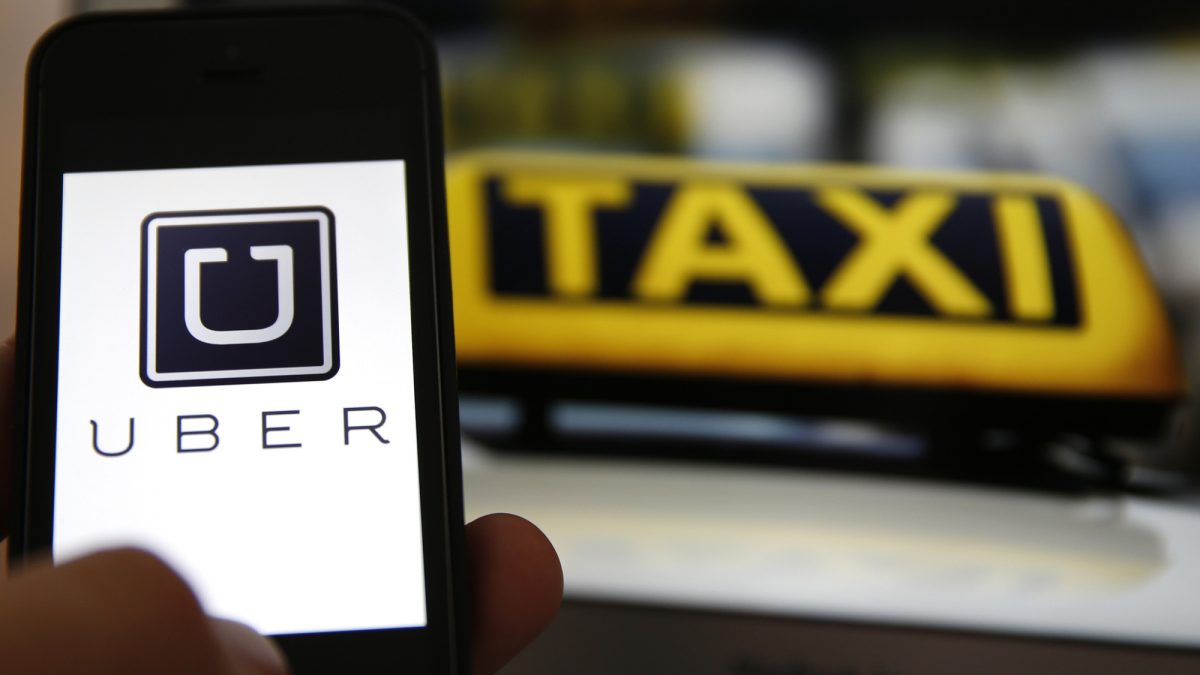
The Future Lawyer Weekly Update – w/c 26th April
April 28, 2021
The Retail Sector: An Overview
April 30, 2021Article by Kristel Haxhia
On 19 February 2021, the Supreme Court delivered another landmark judgement. This time it concerns one of the most successful Silicon Valley start- up companies – Uber. Which by default is set to affect the world’s gig economy, serving as a catalyzer to lead other like companies to behave in the same route.
The UK Supreme Court dismissed an appeal by the taxi booking app against a lower court’s judgment that its drivers should be classified as “workers” rather than self-employed. That grants them the entitlement to holiday pay, sick pay and the minimum wage. The decision strikes not only at the heart of the company’s business model but the gig economy generally.
Uber had argued that the drivers were independent, third-party contractors.
The Case – Importance and Potential Worldwide Precedent Impact
In 2016, an employment tribunal ruled in favor of the drivers, led by Yaseen Aslam and James Farrar, who claimed they were workers employed by Uber and therefore entitled to certain labor protections and employment rights like a minimum wage, holiday pay and rest breaks. Uber insists its drivers are self-employed and that it acts as more of an “agency” which connects them with passengers through an app. Uber wants the legal classification of its drivers as independent contractors to remain unchanged, arguing that they prefer this ”gig” model because it is more flexible and also benefits from a cost perspective.
The Court focused on a diverse set of facts when reaching its decision, such as the degree of control Uber had over contract terms, rates of pay, and the method in which services are delivered. Whether an individual is an employee, a worker or an independent contractor is a question of law that is applied to particular facts and the Uber decision offers helpful guidance to businesses who are trying to apply the appropriate classification. Thus, the judges voted unanimously to dismiss Uber’s appeal against the ruling.
In the UK, the question rested on the degree of control the company has over the drivers. The judgment, however, stands on specific facts about the relationship between Uber and its employees. The court asserted that Uber set maximum fares, drivers had no say in their contracts and the application imposed penalties if drivers cancelled too many requests. This level of control meant drivers could not increase their income using “professional or entrepreneurial skill”, the court concluded, meaning they worked for Uber and not themselves. However, the Uber drivers are not regarded as employees. There are 3 employment categories under UK law: employees, who are guaranteed employment rights and benefits; workers, who enjoy some of those rights; and the self-employed, who have very little protection. The Supreme Court has just moved the drivers from the third of these categories to the second.
Worker rights are limited and businesses still have considerable flexibility in the way that they engage workers, but there’s no doubt this decision could have a significant impact on the business model of a company like Uber. The provision of paid holidays, in particular, could have a substantial commercial impact. The decision could also have huge implications for Uber’s UK business, as well as the wider gig economy. The case sets a precedent for how millions of gig economy workers are treated in the UK and elsewhere (because foreign courts are attentive to other jurisdictions’ courts decisions). Thus, the judgement is a landmark one with significant implications for gig-economy outfits such as Deliveroo and others.
How does Uber work and how could it change?
What is Uber? It is a technology platform that puts customers seeking a taxi in touch with drivers who own cars and are willing to provide rides. Uber’s case and business model depends on drivers being regarded as self-employed contractors i.e., cheap. Uber set maximum fares; drivers had no say in their contracts; the application-imposed penalties if drivers cancelled too many requests; and they had little or no ability to improve their economic position through “professional or entrepreneurial skills” – so in practice the only way in which they could increase their earnings was by working longer hours while constantly meeting Uber’s measures of performance. Which meant they worked for Uber and not themselves. Uber announced it will guarantee its 70,000 UK drivers a minimum hourly wage, holiday pay and pensions, in a dramatic u-turn which could put pressure on other gig economy firms to change tack.
How will Uber behave in the future? It remains to be seen how Uber will react and whether it can tweak the platform so that it reduces this control, allowing drivers to be genuinely self-employed. If it does so, however, it will mean the taxi booking app will be less able to guarantee a uniform service. The alternative would mean raising prices to cover the additional costs associated with conforming to the law. Either way, the company’s business model in the UK — London is one of its few profitable markets worldwide — will have to change. The principles behind the judgment should also worry other gig economy businesses and their investors. Start-ups that want to control their workers and guarantee a particular kind of service will in exchange have to provide them with sick pay, holiday pay and the minimum wage. That will raise costs and reduce returns. The days of profiting from ambiguity in UK employment law could come to an end.
How will it affect Uber and its counterparts?
First off, shares of Uber sank over 1% in premarket trading. The ruling strikes at the heart of Uber’s business model. It is anticipated that there will be a significant class action against Uber and as a business, it could need to reflect very carefully on the implications of the judgment. Businesses operating in the same way as Uber in the UK may face a similar raft of claims from their contractors. They could face the potentially enormous cost of settling those claims and compensating their new employees for the benefits they should have received. This would not mean, however, that all businesses using ‘gig workers’ will have to give them worker status. In the Uber case, the Supreme Court noted that the tight control exercised by Uber over drivers, who were effectively at Uber’s beck and call under contract terms dictated to them, meant that drivers could not really be considered independent contractors or ‘entrepreneurs’.
So the gig economy may not as yet be over, though there is no doubt it is in danger. ‘Worker’ is a specific classification in UK law, and a worker is not an employee. Employee status was not claimed in the litigation, and so this ruling does not find the claimants to be employees. The decision would cause more jurisdictions to question Uber’s practices, and in places where Uber cannot avoid giving employment benefits to drivers, the company’s costs have been predicted to increase by up to 30%.
This decision represents a challenge not only to Uber, but to the norms and conventions governing the gig economy. The decision adds to a growing list of similar court rulings in Spain, Italy, the Netherlands, France, Switzerland and Belgium, ruling in favour of reclassifying gig workers. Moreover, there have been similar cases raised by cycling couriers who also believe that they should be classified as ‘workers’ rather than self-employed.
Nevertheless, Uber is not surrendering without a fight. In California, taxi hailing firms Uber and Lyft spent more than $200m (£144m) on a referendum campaign to exempt their businesses from the newly introduced AB5 law – Proposition 22, which would categorize their drivers as independent contractors rather than employees with mandated benefits. The proposition won the vote in November last year. However, in Europe it does seem the direction is towards more rights for those who work in the gig economy. But then again, Uber is already trying the Proposition 22 approach in Brussels. It has published a “white paper” explaining how important it is to preserve the freedom of 600, 000 European workers to “access flexible earning opportunities”. The “current legal ambiguity on the status of independent workers, makes it difficult for platforms like Uber to provide both access to flexible work and benefits and social protections to independent workers”. However, because of Brexit, the option of taking the case to the European Court of Justice is no longer available.
How does this affect the Gig Economy?
The term ‘Gig Economy’ describes a sector of the service industry primarily devoted to work done on a freelance or temporary basis (Merriam Webster). Some associate and link the gig economy to modern slavery as workers can be exploited by ‘tricky contracts’. In many ways, the gig economy isn’t new, nor did it arise strictly as a result of apps; there are many jobs that have traditionally been performed on a pay-as-you-go basis, such as freelance writers for example. However, as long as there will be apps the gig economy will continue to thrive furthermore.
Clearly, this decision is significant as there are around 5 million people working in the gig economy. Even Uber itself acknowledged that this move is likely to have a wider impact on the ride hailing and the broader global gig economy. Hence Uber is just one part of a larger private-hire industry, it is expected that all other operators will join, in improving the quality of work for their workers. The Uber case will almost certainly have significant implications not only for Uber, but for other “atypical working arrangements” operating in the flexible, gig economy. Some experts believe that Uber’s move needs to be treated as a specific case as it reaffirms that businesses need to utilize the gig economy in the correct manner with the correct assessment process in place.
This decision now paves the way for many working in the gig economy to claim paid time off for holiday, the minimum wage, a maximum 48-hour week and sick pay. Many of these costs will not be factored into companies’ budgets and, at a time when many businesses are under pressure, they will need to urgently revisit the status of their workforce in light of this decision. The decision also has major implications for Britain’s gig economy. Other companies operating a similar model to Uber’s include Bolt and Ola. Currently there is clear trend towards recognising improved rights and employment status for those working for gig economy companies dealing with food delivery and taxi hire.
At last, this verdict will undoubtedly have far and wide-reaching implications for all gig economy operators and will make it harder for companies engaging people via digital platforms to assert that they are self-employed, despite contractual documentation which may state otherwise.





